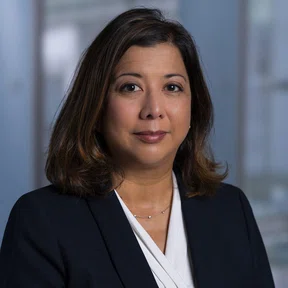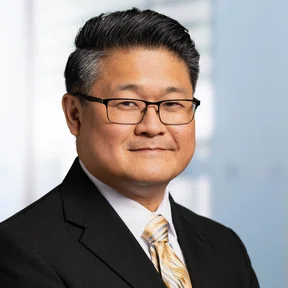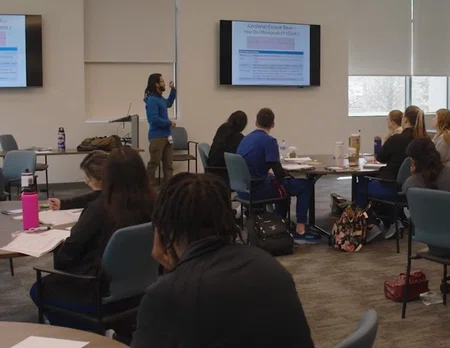© 2024. Houston Methodist, Houston, TX. All rights reserved.


In this
issue

WELCOME
NURSING SCIENCE

Prioritizing Nurse Perspectives in Technology Design

Brand Image of the Nursing Profession

Meet Houston Methodist’s Newest Nurse Scientists!
EDUCATION
PRACTICE

Unlocking Excellence: Practicing at the Top of Your License

Compassionate Care: Supporting and Caring for Nurses
PROFESSIONAL DEVELOPMENT
MAGNET
FROM OUR TEAMS

ABOUT DISCOVERN
PROFESSIONAL DEVELOPMENT
Opportunities for Advancement in Nursing at Houston Methodist

Clinical Research Nursing
By Raquel Bunge, BSN, RN, CCRC
Senior Research Administrator
Director, Academic Office of Clinical Trials,
Cockrell Center for Advanced Therapeutics
and Office of Regulatory Affairs
Houston Methodist Research Institute
I graduated from The University of Texas Health Science Center Houston with my Bachelor of Science in Nursing (BSN) and started my nursing career here at Houston Methodist Hospital in 1990 in the Medical Intensive Care Unit (ICU).
A few years into my ICU experience, I was first introduced to clinical research. I was the night shift nurse for a patient with fulminant hepatic failure. This patient was the first human subject to receive a novel liver perfusion device developed by a hepatologist and scientist from Baylor. I asked many questions and was so intrigued about this new device that could treat acute liver failure that when those doctors formed their own biotech device company, they offered me a job as a research nurse. I was unsure of what a research nurse did, but they wanted a nurse with experience working with critically ill patients. Their director of Regulatory Affairs taught me what I needed to know about clinical research. We developed training manuals, consent forms and case report forms for the nurses working with the device, and I helped start and run their Phase 1 trial at King's College in London.
Unfortunately, the company ran into funding issues. So, I returned to work at Houston Methodist within the Department of Cardiovascular Anesthesia (CV), leading drug and device trials for patients undergoing cardiac and vascular surgeries. As a research nurse, my primary tasks were to complete the Institutional Review Board (IRB) submissions for the studies, screen and consent patients, and collect the data for the study. My responsibilities included going to the OR to ensure the anesthesiologist and surgeons followed the protocol and working with the ICU nurses to collect the post-surgery data and labs needed for the trial. Also, I assisted doctors with monitoring patients for any potential adverse events or side effects from the study. I also documented and reported any of these events to the study sponsor and hospital IRB; I would also see the patients for their follow-up doctor visits and work with the study monitors to review the data and verify that it was collected properly. A research nurse's role is very collaborative with the investigators of the trials, and they work with you to ensure data is collected properly and protocol and regulatory guidelines are followed.
For almost 20 years, I worked in the CV surgery department, which is now the DeBakey Heart and Vascular Center. I moved from research nurse to Senior Research Nurse and then to Clinical Trials Manager overseeing CV surgery research, heart failure research, and cardiac imaging research groups. Throughout my career, I worked on many exciting new novel therapies, from early left ventricular assist devices to total artificial heart studies, endovascular graft studies for aortic aneurysms, and percutaneous aortic valve trials.
I eventually moved to the Houston Methodist Research Institute (HMRI) general research department to manage an NIH-funded multicenter trial developed and initiated by one of our electrophysiology (EP) cardiologists, Dr. Miguel Valderrabano. I oversaw, with the principal investigator (PI), 12 sites throughout the United States, and we enrolled over 400 patients in that trial. It was a great accomplishment when the study was completed and we could publish our results.
After many years of running clinical trials, I became manager of HMRI's Clinical Research Quality Assurance Program. In this role, I provided internal support for our investigator, initiated clinical research studies, and provided education for our clinical research staff. Recently, I moved into a Senior Research Administrator role. In this role, I oversee the Academic Office of Clinical Trials, which provides general clinical research support to any Houston Methodist physician in the Texas Medical Center, our community hospitals, the Cockrell Center for Advanced Therapeutics, which runs our phase 1 clinical trials, and the Regulatory Affairs Office for HMRI which supports investigator-initiated trials that need submission to the U.S. Food and Drug Administration.
I have had a long and enjoyable career in clinical research. The best part of this career has been the opportunity to work with fantastic and brilliant investigators to help them bring new novel treatments to our patients. Being a nurse in the clinical research field, I believe, is the epitome of Leading Medicine here at Houston Methodist.

Forensic Nursing at Houston Methodist
By Andrea Cressy, MSN, RN CEN, SANE-A
Director, Forensic Nursing Program
Forensic nursing is a specialized field that intersects healthcare and the legal system. Forensic nurses are often called upon to provide specialized medical care and support to victims of violence and abuse and to collect and preserve evidence for potential use in legal proceedings.
To become a forensic nurse, one must have a registered nursing degree, two years of bedside clinical experience and additional training in forensic nursing is required. Required certification is available through organizations such as the International Association of Forensic Nurses and the State of Texas Office of the Attorney General’s Office (OAG).
If you want to transition into forensic nursing, consider doing the following: seek out opportunities to work with victims of violence or abuse through a local crisis center or hospital and learn more about forensic nursing by reading articles and attending conferences or workshops.
Becoming a forensic nurse requires critical thinking skills and knowledge of the legal system. It can be a challenging and rewarding career path for those who are passionate about helping victims of violence and working towards justice.
I embarked upon this journey at Houston Methodist in 2014, moving here from out of state with a career in critical care, emergency nursing, trauma and forensics. I was instrumental in implementing the first Sexual Assault Nurse Examiner (SANE) program at Houston Methodist West. From the time of inception, our services have expanded systemwide to provide trauma-informed care to patients 13 and older for sexual assault, interpersonal violence, human trafficking and elder abuse. Our team has grown from six nurses in 2014 to 33 nurses, with an additional 12 in training. Below are the criteria for becoming a forensic nurse. This training takes approximately one year to complete.
- Unencumbered Registered Nursing license
- Two years of bedside nursing clinical experience
- 40-hour sexual assault didactic course approved by OAG
- 12 courtroom observation hours
- SANE Simulation course with 10 speculum insertions
- Shadow eight forensic exams with a preceptor

Healthcare Clinical Value Analysis: An Integral Role Within Hospital Supply Chain
By Renato Maclan Jr. MSN, MBA, RN
Director, Clinical Value Analysis
Supply Chain Management
The costs of healthcare are becoming increasingly expensive for those we serve. You often hear stories and news articles regarding families having difficulty shouldering the burden of the hospitalization of a loved one or individuals having to postpone needed care due to affordability concerns. With recent increases in labor, drugs and medical supplies; the picture does not appear to be getting better for our patients.
This is where healthcare clinical value analysis (VA) steps in. The increasing number of medical and surgical supplies and devices, with their growing complexity, demands a comprehensive value analysis approach to compare the costs and benefits of our products. VA professionals intersect hospital supply cost, patient care quality, financial outcomes, and endeavor to improve all three dimensions with better decision-making simultaneously.
To make our decisions, we harness powerful tools such as national price benchmarking to review what others in the nation have paid for any specific product (i.e. a spinal implant or an IV catheter). We look at procedural case costs concerning quality and outcomes data and benchmark them against other hospitals. We investigate clinical evidence research on the products used in the hospital.
My path to becoming a VA professional started during my first role as a Transplant ICU nurse. While caring for these clients with lengthy hospitalizations, I would often hear from the patient’s family members about the cost of their various hospitalizations. I eventually pursued graduate studies in nursing and business, focusing on healthcare administration and business operations.
During one of my nurse manager roles, I raised my hand when the chief nurse executive requested help to review supply expenses. Little did I know that it would eventually lead me to a role within the supply chain department managing the loading docks and all nursing supply locations! It was an exciting role because I had to quickly learn all the steps to get thousands of products to arrive at the proper departmental bin ready for use. As stressful as the job was, I knew I could rely on my nursing experience to connect all the dots for those providing care. As the center of patient care, the nurse often knows how all the interdependencies of the various hospital departments combine to care for patients. I had to demonstrate similar levels of work and caring as I did at the bedside within a completely different department.
Since that time, I’ve held various roles focused on advancing the discussion regarding cost discipline, appropriate product selection using clinical evidence, and proper utilization of products. I’ve become an adept student in many aspects of supply chain management, such as contracting, capital purchasing, conducting product trials, legal, invoicing and payment.
VA professionals collaborate internally with physicians, technologists, therapists, clinicians, staff, administrators and executives. We also work externally with suppliers, distributors and group purchasing organizations to ensure effective quality outcomes that impact the overall cost of healthcare.
I’m thankful to serve in my role, helping hospitals provide greater financial value to the patients that we care for.









